In the mid-August sunshine, I returned to Rao Tre village, Huong Lien commune (Huong Khe district, Ha Tinh province), on the border of our country. The village nestles against the slopes of Ca Day mountain and faces the upstream of the picturesque Ngan Sau river.
The Chứt ethnic people in Rào Tre village celebrate the Lấp Lỗ festival.
This is home to 46 families with 156 people of the Chứt ethnic group (belonging to the Mã Liềng tribe). Their ancestors once wandered and thrived in caves or at the very top of the majestic Trường Sơn mountain range.
Before the 20th century, few knew that within the dense thickets and caves of Ca Day Mountain and the final stretch of the Ngan Sau River, an entire tribe of people lived a precarious, wild existence. The appearance of the Chut people at that time was merely a "piece" in the vast forest, contributing to the diversity of the Truong Son mountain range's ecosystem. It wasn't until 2001, after learning of the Chut people's continued existence, that the Ha Tinh Border Guard, with the assistance of local authorities, established a "three-together" task force (eating together, living together, working together) stationed in the area, and only then did the Chut people truly receive enlightenment. Having lived in darkness in cold, desolate caves, relying for sustenance from the mountains and forests for generations, they were overwhelmed by the dawn of a new day when they were guided out into the open. They were truly bewildered and excited, even fearful and skeptical, as they stepped into the vast expanse of the civilized world .
The Chứt people are not "wild beasts lost in the deep forest," but integrating them into the community requires not only perseverance and exemplary conduct from the border guards, but also profound compassion and empathy. Furthermore, the soldiers must possess unwavering faith. They view protecting the peace of the border region and helping their compatriots escape poverty, backwardness, age-old darkness, and outdated customs as a sacred mission entrusted to them by the Party, the people, and the army. Besides ensuring the Chứt people have stable housing and sufficient food, the task of educating and persuading them to adopt a civilized lifestyle is extremely difficult. To integrate them into the community, achieve a stable and civilized life, maintain their lineage, and prevent consanguineous marriage, beyond providing food and clothing, healthcare and family planning are extremely challenging and complex issues.
Border guards in Bản Giàng, along with teachers, accompany Chứt ethnic minority students to school at the beginning of the new school year.
To help them break free from outdated customs passed down through generations, Lieutenant Colonel Phan Trong Nam, Commander of Ban Giang Border Guard Post, shared: “Since receiving guidance and education from the border guards, the Chut people have voluntarily abandoned many harmful customs. As a result, the number of infant deaths has decreased significantly, and the life expectancy of women has also increased. To continuously improve the living standards of the people, from the day the village was established until now, the post has maintained five officers stationed in the village, along with one medical officer, to regularly examine, treat, and care for the villagers. Thanks to the effective medical care and dissemination of knowledge on reproduction and family planning, in the last two years, there have been no infant deaths in the entire village.”
"Changing people's hearts is harder than changing the course of a river," so getting them to abandon outdated customs is not something that can be done overnight. The first lessons on personal hygiene were disseminated to the villagers by border guards through some women in the villages. Then there are issues like contraception, consanguineous marriage, crossing the river to seek education, and the story of ghosts returning to the village... all of which present significant challenges for the border guards stationed in the villages. To effectively implement family planning, local women's associations and youth unions collaborate in disseminating information about contraceptive methods to each family. Border guards directly provide funding and transportation for them to go to district and commune health centers. In recent years, many couples have voluntarily opted for sterilization.
I met Mr. Ho Nam carrying bamboo back from the forest. I asked him what he was doing with the bamboo, and he smiled, revealing his white teeth, and replied: "I heard the soldiers say that this year there's been a lot of sunshine, so there will be heavy rain and wind soon. I'm bringing this bamboo home to use as shelter, otherwise I'll be worried about not being able to react in time when it rains." "Worried about not being able to react in time." That's a simple statement, but it reflects the profound understanding of a person who has been enlightened. From a wild tribe, the Ca Day village now has one student attending university, 15 students attending high school and middle school, and 34 students attending primary school and kindergarten.
Border guard medical personnel provided medical examinations, treatment, and medication to the Chứt ethnic minority people.
Colonel Bui Hong Thanh, Commander of the Ha Tinh Border Guard Command, shared: “Providing sufficient food on a regular basis, combined with protecting clean water sources to limit disease outbreaks, is a regular task carried out closely in cooperation between the soldiers stationed in the villages and the local people. I believe that the outdated customs of the Chut people will be eradicated. And they will have the strength to rise up and integrate into the progressive flow of society.”
I returned home at midday under the scorching sun. The Tiêm River, a waterway originating from the Cà Đay mountain, had dried up completely. Crossing the river, I looked back. Seeing the village with its fresh water, food, and clothing filled me with hope that one day soon the people of Cà Đay would become more civilized and prosperous. On the hillside, a woodpecker, having returned to its nest after searching for food, was pecking at a bamboo stalk. Thinking about the wonders at the foot of Cà Đay mountain, upstream of the Ngàn Sâu river, and the people of the Mã Liềng ethnic group, my heart was filled with emotions difficult to put into words.
Huong Khe, August 2023
Tran Hau Thinh
Source



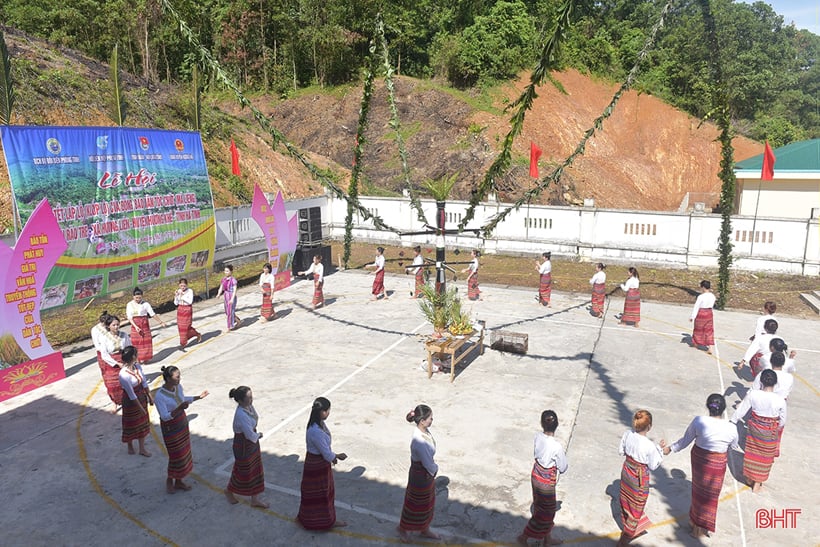
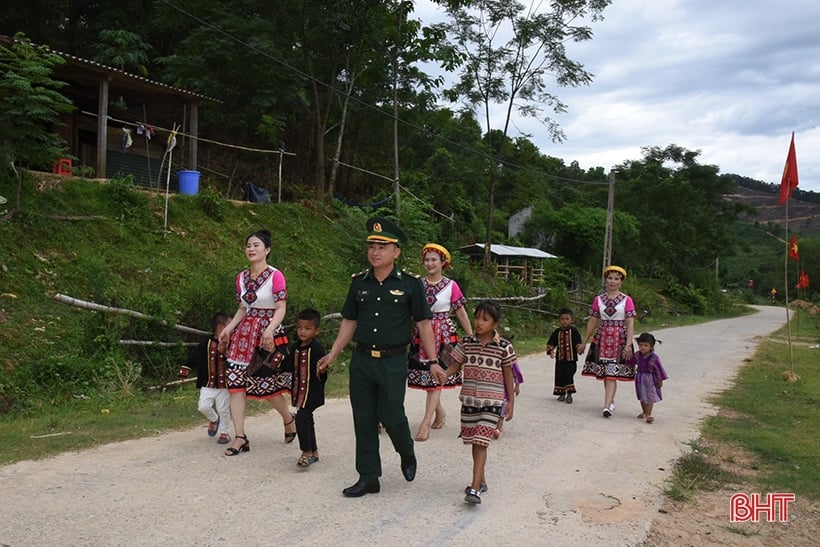
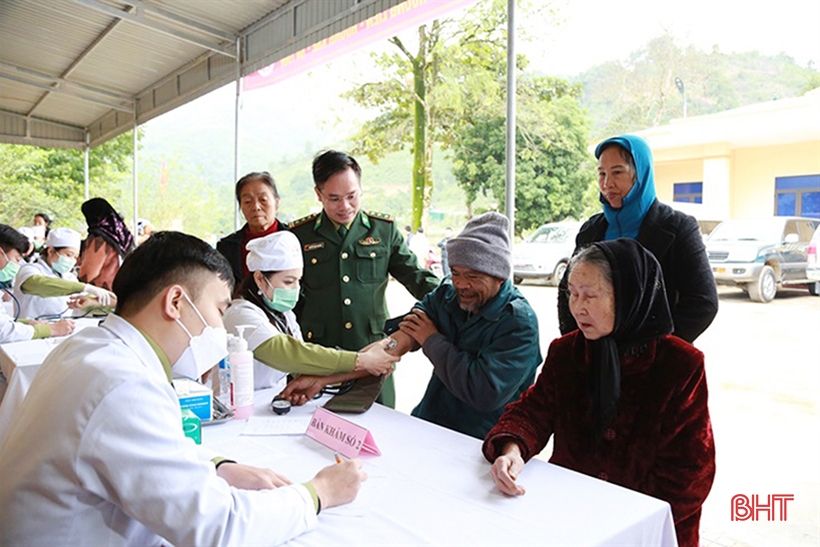


































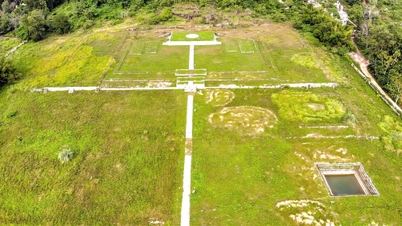










































































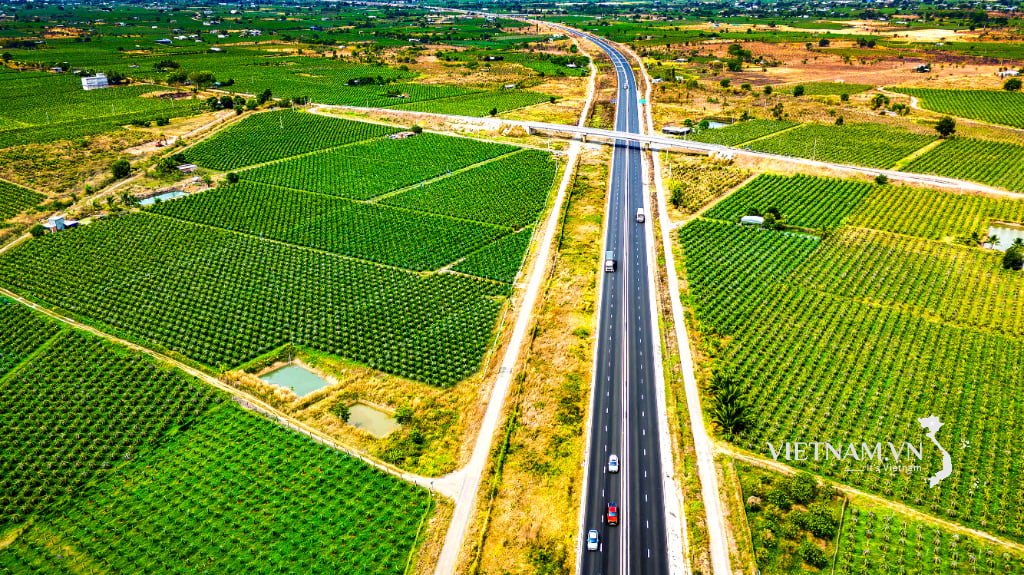
Comment (0)